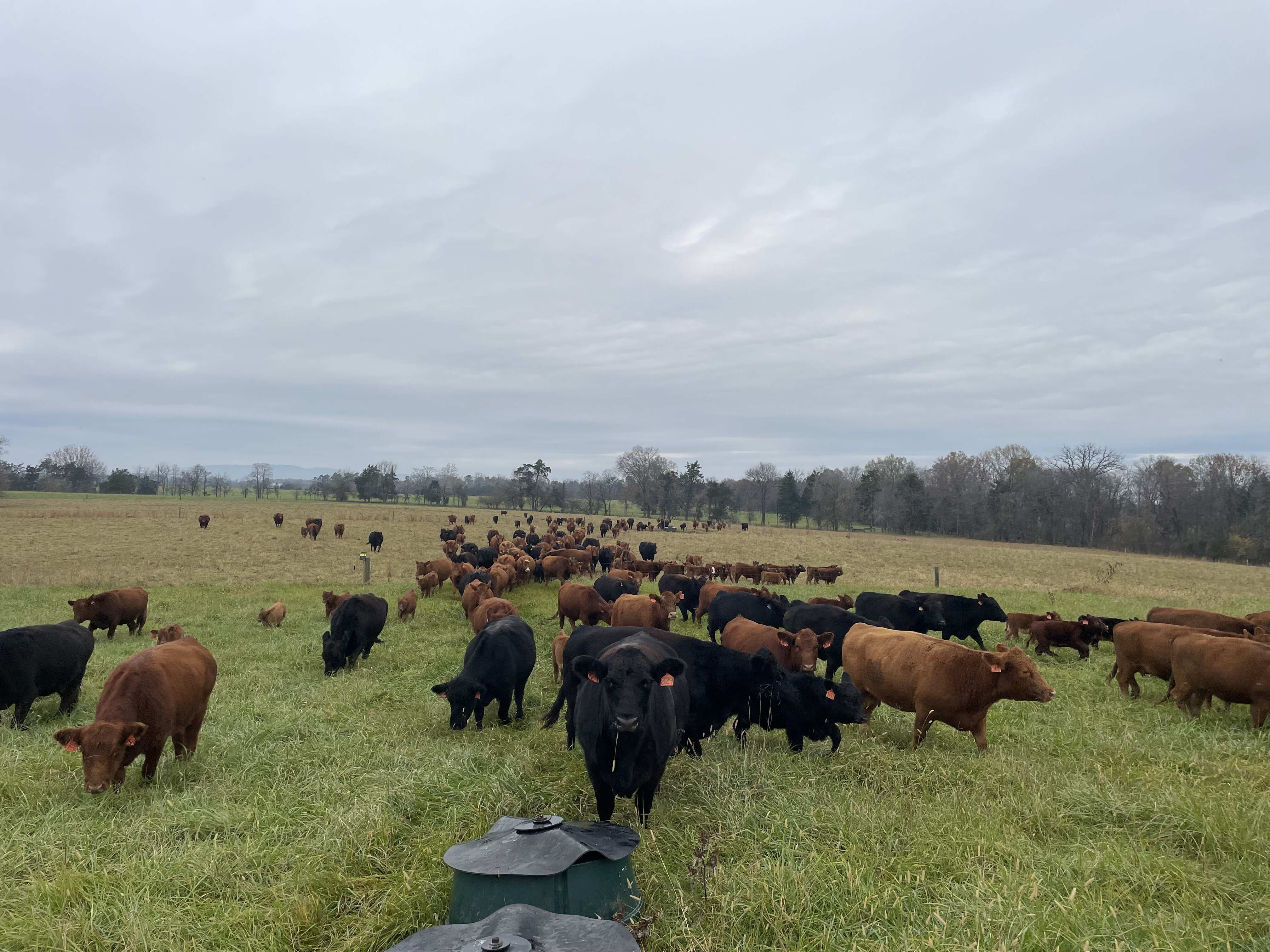The Weight of Spring
posted on
March 26, 2023
Hello Rucker Farm Family!
We are writing this letter on a soggy spring morning. We are thankful for this big gulp of rain; the grass has turned green overnight. It’s hard to ignore the amount of growth and change around us! The spring ephemeral flowers have already come and gone. All of our sheep have had their lambs, seeds are largely in the garden beds, our first batch of chickens are on pasture.
Spring is a tricky season. It is the beginning of yet another cycle of birth or rebirth and I think it’s important to share that spring isn’t always beautiful. In truth, spring can look incredibly cruel and unforgiving, not unlike winter – spring is an important teacher in patience and acceptance.
One of the main reasons Garrett and I have sheep is to learn transferable skills about managing herds of livestock and the nuances of rotating on our pastures. In theory, sheep are a good financial investment, create a positive impact on pasture, and are generally safe for our young children to be around.
One morning last week, Garrett and I were watching one of our laboring sheep. When it comes to birth, we would consider ourselves on the end of the spectrum that allows nature to run its course. However, it is our responsibility as farmers to protect and take things into our hands if we feel the wellbeing of an animal is being jeopardized. That morning the mother looked strong, focused, scratching at the earth, using movement in such an important and beautiful way. We decided to run into town, fully expecting to see her and her new lamb bouncing at her feet by the afternoon. On our return, she was slow to get up and emitting a very strong odor. Immediately, we knew that was not a good sign and decided to gently assist her in delivering, what we suspected, a stillborn lamb. Toren sat on an old tire as he watched Garrett and I assist this mother in passing her first, then second dead baby.
Our son got to see his parents calmly nurture this birthing mother. He saw how we cradled and pet her head and pulled with her weak contractions. Toren was curious and respectful, and when he had seen enough, simply got up, said “I don’t want to see any more,” and walked to the driveway and made a pile of gravel with his hands.
The mother got up and walked past her babies and rejoined the flock. From the outside looking in, this level of acceptance moved me to my core and left me sitting alone processing what just happened.
This is a component of spring that we don’t often talk about, though it is important that it is shared. People are afraid to talk about death, though it is a common occurrence on our farm. We run with our livestock guardian dogs after flocks of buzzards who come for the afterbirth of our lambs. This is one of the many roles of being a steward; a guardian.
Thank you for trusting and supporting us in this role. We talk about the weight and responsibility of having to process our meat birds, though I hope this shines a light on the intentionality and respect we have for all life on our farm at every stage.



